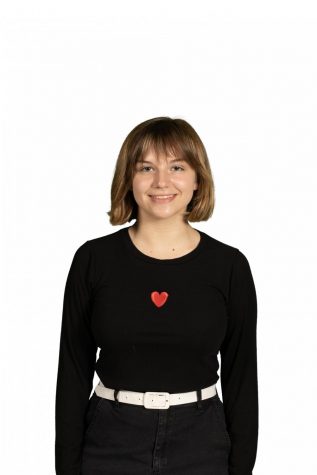Older influences
Sophomore details growing up with aged parents
October 9, 2019
Beginning from the earliest moments of my childhood, I always sensed there was something different about my parents. It wasn’t how my mother smothered my three-year-old head with nauseating amounts of hair bows. Several of my classmates struggled with the same dilemma. It wasn’t my dad’s staggering height although that never aided in his blending in with other parents. I knew they were unusual , but I realized it lied in areas other than their habits and height.
Instead, I concluded it was how my mom’s eye wrinkles solidified when she laughed. It was my dad’s salt and pepper hair that lightened with each argument at work. Eventually, through extensive analysis, toward the end of preschool I cracked the code as to what made them stand out.
They’re old.
My mom and dad brought me into this world when they were at the ripe ages of 42 and 43 respectively, and I’d be lying if I said their birthdates didn’t show in their sense of self.
My father is the embodiment of that cane-welding grumpy old man nagging the neighborhood misfits to get off his lawn. He has an opinion on everything and will not hesitate to share his feelings if provoked. Think of soccer moms, except trade in minivans and entitlement with pickup trucks and a disdain for what the world has become.
My mom, on the other hand, takes a more humorous approach to her age. She’s the good natured senior amazed by any new advancement in technology. To her, cell phones still sound straight out of science fiction. The thought of man walking on the moon astounds her every bit as much as when she saw it on a greyscale screen in 1969.
As being an only child meant having few youthful influences, I adopted many of their personality traits. However, their trademark behaviors were off putting coming from a five-year-old. My dad’s remarks on the economy, while acceptable from an irritable, old man, were strange when recited in my squeaky preschool voice.
While my classmates entertained themselves with frivolous matters like finger painting, I took up ranting in the style of my father and devouring obscure educational magazines like my mother. These practices attracted few friends. It only further pushed them away, creating a barrier between me and any organic social interaction.
This lack of communication skills followed me throughout elementary school. I viewed roller coasters as death traps since my parents’ inability to withstand heat made amusement park trips frustrating. My dad’s infatuation with “Les Miserables” resulted in my tendency to sing about the French Revolution whilst frolicking along the playground. I was more than weird and friendless. Now, I was weird, friendless and suspected of starting an uprising.
Upon realization of my quirks, my first response was not to improve connections with others. Rather, it was to further isolate myself from my peers. My social skills remained stagnant, an awkward imitation of the people I looked up to most.
However, given time, I learned how to carry a conversation without giving away my upbringing. I discovered that a simple wave or head nod directed at classmates was far more helpful in making friends than reiterating my dad’s opinion of the day. Slowly but surely, I broke out of my parents’ shell. I found an identity other than the child with an odd interest in cell phones and the stock market.
As my dad’s hair grows more gray and my mom ages into her facial features, I evolve further as a unique being with individual thoughts, actions and opinions. My social skills are a work in progress, but I’d like to think I’ve come a long way from the economy-obsessed kid who finally discovered her parents’ birth years.















